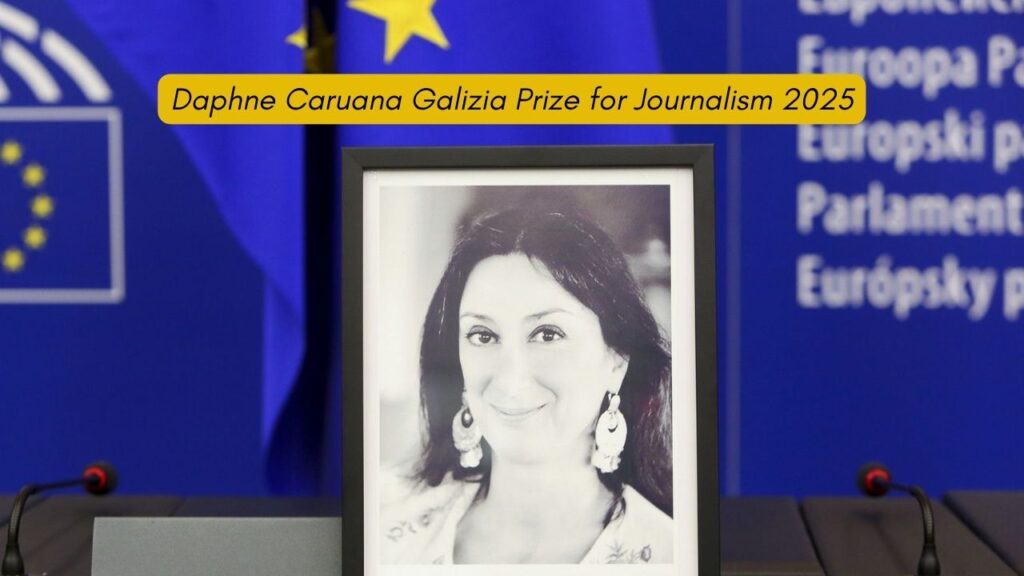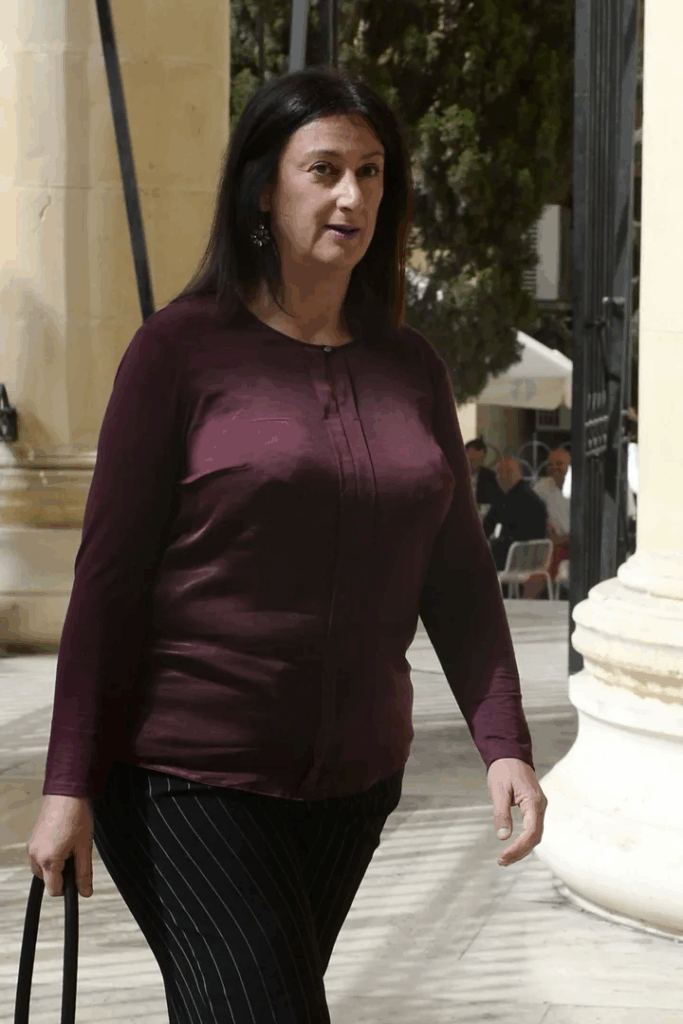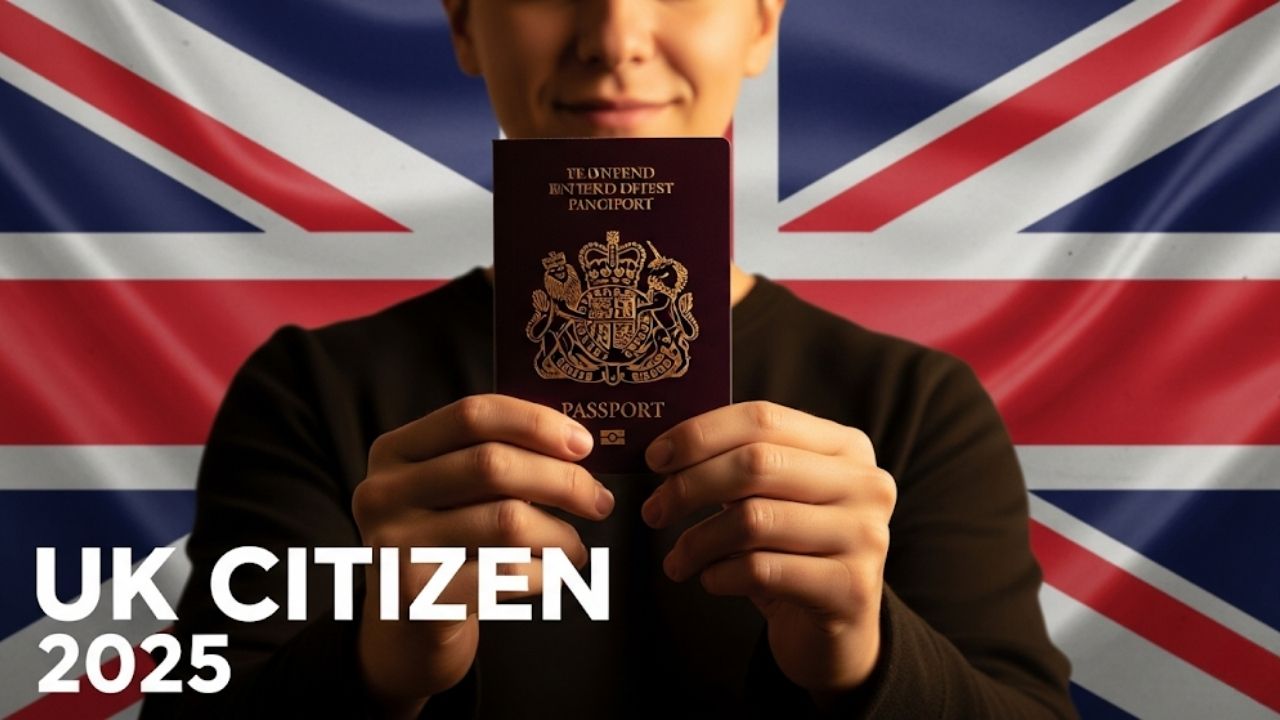
For journalists committed to uncovering uncomfortable truths, the Daphne Caruana Galizia Prize for Journalism 2025 is more than just an award; it’s a profound recognition of courage and impact. If you have published an in-depth story that upholds the core values of the European Union, you might be holding a key contender for this prestigious €20,000 prize. This guide is designed to walk you through the entire process, offering clear, actionable steps to help you prepare a compelling submission that honors the legacy of a journalist who gave everything for the truth.
Daphne Caruana Galizia Prize for Journalism 2025
Navigating the details of any major award can be complex. Here is a simple breakdown of what you need to know about this significant journalism award.
| Key Fact | Detail |
| Prize Money | €20,000 |
| Application Deadline | July 31, 2025 |
| Core Eligibility | Professional journalists of any nationality |
| Work Eligibility | In-depth stories published/broadcast in one of the 27 EU member states |
Applying for the Daphne Caruana Galizia Prize for Journalism 2025 is an opportunity to have your most significant work recognized at the highest level in Europe. It is a chance to honor the memory of a journalist who embodied integrity and to stand with a community dedicated to protecting democratic values.
Your work has the power to bring hidden truths to light. By preparing a thoughtful, compelling application, you not only stand a chance to win the prestigious €20,000 award but also to affirm the essential role of journalism in a free society. Start preparing your submission today, and let your work speak for itself.
More Than an Award: The Enduring Legacy of Daphne Caruana Galizia
To understand this prize, you must first understand the woman for whom it is named. Daphne Caruana Galizia was Malta’s foremost investigative journalist, a relentless force who exposed corruption, money laundering, and organized crime. Her work was fearless, incisive, and deeply principled. In 2017, she was assassinated by a car bomb in an attack that shocked Europe and highlighted the grave dangers journalists face.
Launched by the European Parliament in her honor, the prize is a powerful statement. It serves as a tribute to her memory and a clear signal of support for journalists who, like Daphne, refuse to be silenced. Winning this award means carrying a torch for press freedom, democracy, and the rule of law.

Is Your Work a Contender? Understanding the Core Criteria
Before you begin the application process, it’s essential to ensure your work aligns with the prize’s stringent requirements. Let’s break down the eligibility rules.
Who Can Apply?
The prize is open to professional journalists and teams of journalists of any nationality. This inclusivity underscores the universal nature of journalistic values. You can submit your work as an individual or as a collective representing a collaborative investigation.
What Stories Qualify?
This is not an award for breaking news or daily reporting. The jury seeks in-depth, outstanding journalism that investigates, explains, and promotes the core principles of the European Union, such as human dignity, freedom, democracy, equality, the rule of law, and human rights.
Your story must have been published or broadcast by a media outlet based in one of the 27 EU member states. This is a crucial point; while you can be of any nationality, your work must have reached an EU audience through an established platform.
The Submission Window
For the 2025 prize, your journalistic piece must have been published or broadcast between September 1, 2024, and July 31, 2025. Make sure your work falls within this timeframe before proceeding.
How to Prepare Your Winning Entry for the Daphne Caruana Galizia Prize for Journalism 2025?
A successful application is built on more than just a great story; it requires a thoughtful and strategic presentation. I’ve seen many talented journalists stumble on the application process itself. Follow these steps to ensure your work gets the attention it deserves.
Step 1: Select Your Most Impactful Story
Choose the piece of journalism that best reflects the spirit of the prize. The winning entries are often cross-border investigations that reveal systemic issues and hold power to account. Ask yourself:
- Did my story uncover new information?
- Did it have a tangible impact on society or policy?
- Does it exemplify the values Daphne Caruana Galizia stood for?
Step 2: Craft a Compelling Synopsis
Your application must include a synopsis of your story in English. In my experience reviewing prize submissions, the synopsis is where many applications either soar or stumble. This is your chance to frame your work for the jury.
Your summary should be clear, concise, and powerful. Explain the core findings of your investigation, the methods you used (especially if they were innovative or challenging), and, most importantly, the story’s impact. If your work led to a public debate, a policy change, or a legal investigation, state it clearly.
Step 3: Gather Your Proof of Publication
You will need to provide a digital copy of your story in its original language. This can be a PDF for print articles, an audio file for radio broadcasts, or a video file for television pieces. Ensure you also have a clear, verifiable link to where the story was published online.
Step 4: Navigate the Online Submission Portal
The application must be submitted through the official prize website. The platform is straightforward, but do not wait until the last minute. Give yourself ample time to fill out all the required fields, upload your files, and double-check everything before hitting “submit.” The deadline is 12:00 PM (midday) CET on July 31, 2025.
What Makes a Story Stand Out? Lessons from Past Winners
Studying past winners provides an invaluable blueprint for success. The 2023 prize, for example, was awarded to a consortium of journalists for an investigation into the Pylos shipwreck, the deadliest migrant boat disaster in modern history.
This investigation, a collaboration between the Greek investigative outlet Solomon, Forensis, The Guardian, and ARD, exemplifies what the jury values:
- Deep Investigation: It went far beyond surface-level reporting to reconstruct the tragedy and question the official narrative.
- Cross-Border Collaboration: It involved journalists and outlets from multiple countries.
- Human-Centric Storytelling: It focused on the human rights dimensions of the story.
- Holding Power Accountable: It directly challenged the actions and statements of the Greek Coast Guard.
The European Parliament often shares details about winning entries.

The Significance of the €20,000 Award
The €20,000 prize is not just a financial reward; it is an investment in the future of investigative journalism. For independent journalists or small newsrooms, this sum can be transformative. It can provide the resources needed to fund the next major investigation, upgrade equipment, or cover legal fees—all of which are critical for sustaining this vital work.
FAQ
1: Can a team of journalists from different countries apply?
Yes. The prize explicitly encourages submissions from cross-border teams of journalists of any nationality. The key requirement is that the story was published or broadcast in an EU member state.
2: Does my journalistic piece have to be in English?
No. You can submit your work in any of the official languages of the EU. However, you must include a synopsis in English as part of your application for the jury.
3: Is there any fee to enter the prize?
No, there is no entry fee to apply for the Daphne Caruana Galizia Prize for Journalism. It is free to enter for all eligible professional journalists.
4: Who decides the winner?
The winner is chosen by an independent panel of judges composed of high-profile journalists and representatives of leading European press associations. This ensures the selection process is impartial and based solely on merit.










